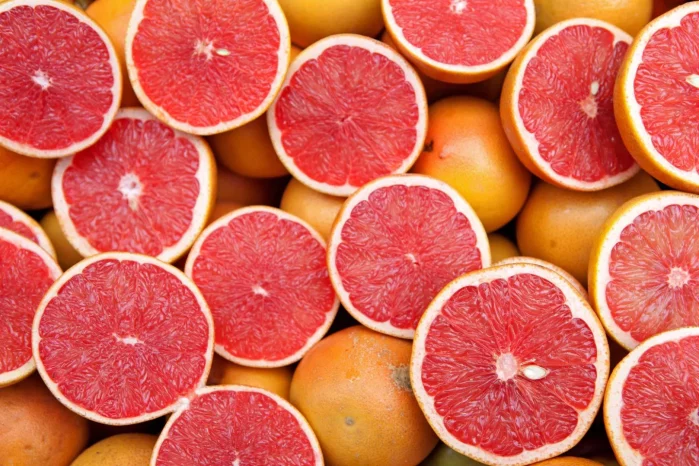Undergoing organ transplant surgery is a life-changing experience that often comes with a regimen of medications and dietary restrictions aimed at ensuring the success of the transplant and preventing complications.
While fruits are generally considered a healthy part of a balanced diet, certain fruits may pose risks for transplant patients due to their potential interactions with immunosuppressive medications or their impact on specific health conditions.
In this comprehensive article, we will explore the fruits that transplant patients should avoid to safeguard their health and optimize the outcomes of their transplant surgery.
Understanding Transplantation and Dietary Considerations
Organ transplantation is a complex medical procedure in which a healthy organ is transplanted from a donor into a recipient to replace a failing or damaged organ.
Following transplant surgery, recipients are typically prescribed immunosuppressive medications to prevent rejection of the transplanted organ by the body’s immune system. These medications work by suppressing the immune response, which can increase the risk of infections and other complications.
Dietary considerations are paramount for transplant patients, as certain foods and beverages may interact with immunosuppressive medications or exacerbate underlying health conditions.
While fruits are an essential part of a healthy diet, some fruits may be contraindicated for transplant patients due to their potential effects on medication metabolism, risk of foodborne illness, or impact on specific health conditions such as diabetes or high blood pressure.
Fruits to Avoid for Transplant Patients
1. Grapefruit and Grapefruit Juice:
Grapefruit and grapefruit juice contain compounds known as furanocoumarins, which can interfere with the metabolism of certain medications, including immunosuppressants.
Consuming grapefruit or grapefruit juice while taking immunosuppressive medications may increase blood levels of the drugs, leading to a higher risk of medication toxicity and adverse effects.
2. Pomegranate:
Pomegranate is another fruit known to interact with several medications, including certain immunosuppressants. Compounds found in pomegranate juice may inhibit the enzymes responsible for metabolizing these medications, potentially leading to increased drug levels in the bloodstream and heightened risk of side effects or toxicity.
3. Starfruit:
Starfruit contains a substance called caramboxin, which can be harmful to individuals with impaired kidney function, including transplant recipients.
Consuming starfruit or starfruit juice may lead to neurotoxic effects, including confusion, seizures, and even coma, particularly in individuals with compromised kidney function.
4. Unwashed Fruits:
Transplant patients should also exercise caution when consuming unwashed fruits, as they may harbor harmful bacteria or pathogens that could lead to foodborne illness.
To minimize the risk of infection, transplant recipients should thoroughly wash all fruits before consumption and avoid consuming fruits that have been left unrefrigerated for an extended period.
Safe Fruit Choices for Transplant Patients
While some fruits may be off-limits for transplant patients due to their potential risks, there are plenty of safe and nutritious alternatives to enjoy. Here are some fruits that are generally considered safe for transplant patients to include in their diet:
1. Bananas:
Rich in potassium and easily digestible, bananas are a nutritious choice for transplant patients, particularly those with kidney or heart conditions.
2. Apples:
High in fiber and antioxidants, apples are a versatile fruit that can be enjoyed fresh or cooked. Be sure to peel them to remove any potential pesticide residue.
3. Berries:
Blueberries, strawberries, raspberries, and blackberries are all excellent sources of vitamins, minerals, and antioxidants. They can be added to yogurt, smoothies, or enjoyed on their own.
4. Melons:
Watermelon, cantaloupe, and honeydew melon are hydrating fruits that are low in calories and rich in vitamins A and C. They make refreshing snacks or additions to fruit salads.
Conclusion
In conclusion, following organ transplant surgery, transplant patients must adhere to dietary guidelines to support the success of their transplant and minimize the risk of complications.
While fruits are generally considered a healthy part of a balanced diet, transplant patients should be cautious about consuming certain fruits that may interact with immunosuppressive medications or pose risks to their health.
By avoiding fruits such as grapefruit, pomegranate, starfruit, and unwashed fruits and opting for safe alternatives, transplant patients can prioritize safe nutrition and optimize their overall health and well-being following transplant surgery.
As always, transplant recipients should consult with their healthcare team or a registered dietitian for personalized dietary guidance tailored to their individual needs and medical history.

























